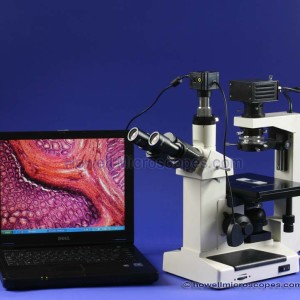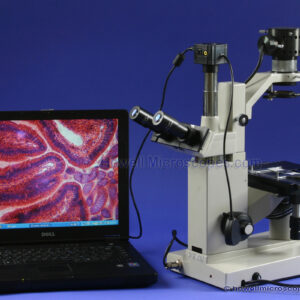Showing all 2 results


A tissue culture microscope requires objective lens and condensers that are capable of longer working distance in order to observe through the bottom of container of the tissue culture specimen. A typical compound biological high power microscope views a thin specimen on a microscope slide with typically only a 0.17mm cover glass on the slide. These objectives are often marked 0.17mm, while the inverted tissue culture microscope may have objectives marked ‘LWD” for long working distance. The working distance of the objective is defined as the distance from the objective’s glass to the top of the specimen as it is in focus. A typical tissue culture microscope may also be fitted for phase contrast microscopy (PCM) as unstained living organisms, living cells and tissue samples are often viewed. The phase contrast feature allows greater contrast in viewing the tissue specimens that normally would appear transparent when unstained.
Applications for tissue culture microscopes could be very diverse such as in medical diagnostics, cellular biology, conducting experiment in university and college level biology class, molecular biology, in studying microbiology, and in researches in the field of environmental and medical science.
In a live cell culture include the media for cell culture that is gelatin like in nature, a bacterium or fungi for creating a living tissue colony, and a culture dish in which the biological cell samples will be placed to grow. Often, harmful bacteria or unidentified bacteria are cultured so proper identification and diagnosis of the medical condition can be achieved. The bacterium culture may require proper temperature and culture media for optimal cultivation.
We carry a variety of digital cameras to capture still and video digital files from the tissue culture microscopes that you have. Our digital USB computer connected microscope cameras can interface the microscope with the computer via the computer’s USB port.
We encourage you to contact our technical sales office today to speak to one of our trained biologists about your particular tissue culture application and how our microscopes will meet your needs.